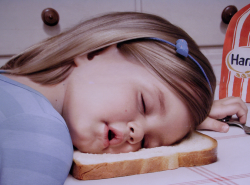- Stay Connected
 Abraham Lincoln
If given the truth, the people can be depended upon to meet any national crisis...
Abraham Lincoln
If given the truth, the people can be depended upon to meet any national crisis...
 Guildford news...
for Guildford people, brought to you by Guildford reporters - Guildford's own news service
Guildford news...
for Guildford people, brought to you by Guildford reporters - Guildford's own news service
University of Surrey Researchers Develop Blood Test for Sleep Deprivation
Published on: 1 Oct, 2018
Updated on: 1 Oct, 2018
Researchers in the Surrey Sleep Research Centre (SSRC) at the University of Surrey have developed a blood test that can prove if an individual is sleep-deprived. It is hoped that the research might eventually help police identify drowsy drivers.
In a study led by Professor Derk-Jan Dijk, of the SSRC, blood samples of 36 participants were taken and tested during a 40 hour period without sleep.
The blood samples were analysed by a machine-learning algorithm that identified a subset of 68 genes linked to sleep deprivation. The algorithm was able to predict with 92% accuracy if the sample was from a sleep-deprived or well-rested individual.
Dr Emma Laing, Senior Lecturer in Bioinformatics at the University of Surrey, said: “We all know that insufficient sleep poses a significant risk to our physical and mental health, particularly over a period of time.
“However, it is difficult to independently assess how much sleep a person has had, making it difficult for the police to know if drivers were fit to drive, or for employers to know if staff are fit for work.”
Simon Archer, Professor of Molecular Biology of Sleep at the University of Surrey, added: “The very existence of such biomarkers in the blood after only a period of 24-hour wakefulness shows the physiological impact a lack of sleep can have on our body.”
While this test revealed biomarkers for acute total sleep loss, Professor Djik said that the next step in the SSRC’s research will be to identify biomarkers for chronic insufficient sleep.













Recent Comments